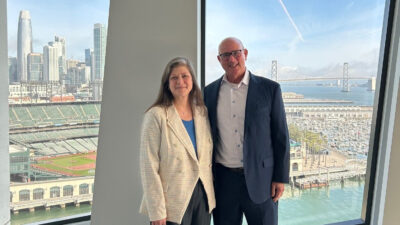BAC Leads Delegation to Promote Early Childhood Education
By Matt Regan
California’s education system is broken to the point that many observers don’t believe it can actually be fixed. We plunged from first in the nation to worst in a generation; a precipitous decline by anyone’s standards. Statistics vary depending on who is producing them, but across the board California consistently ranks at or close to the bottom in student funding, student performance, and teacher/student ratios. We also rank at or close to the top in students qualifying for free or subsidized meals, students who speak English as a second language, and total student population size. In short, our needs are great and our resources not so much.
Faced with such sobering statistics, it is not hard to side with the pessimists, raise the white flag, and declare the problem unsolvable. That, however, is not an acceptable option. California is a knowledge based economy and it is the public education system that previous generations built that made this State the economic powerhouse that it is today. Consigning a whole generation of California children to failure will produce a pig in our education python that will eventually materialize in an inability for California employers to compete for talent in the global marketplace, higher dependence on state welfare programs, and higher rates of incarceration. In short, a recipe for disaster.
The Bay Area Council has been a leading voice for education reform in California, and in particular the need for early education, birth to third grade, to be a component part of any effort to repair California’s ailing public education system. There are many other stakeholders in this reform effort and while we all agree what the problems are, we have rarely reached consensus on what the solutions might look like. All that may have changed thanks to a trip co-hosted by the Bay Area Council to Montgomery County Maryland, and Washington DC this week. Joining us on the trip were six School Superintendents, Department of Education representatives, representatives from the California Teachers Association, the California Federation of Teachers, members of the State Legislature, early education advocates, and business leaders from around California.
Our first port of call was Viers Mill Elementary School in Montgomery Country, Maryland. Viers Mill is one of the top performing public schools in the country, yet faces exactly the same challenges that exist in California, with 65% of students qualifying for free meals, 30% speaking English as a second language, (32 different languages spoken by students) and a student mobility rate of 22%. Montgomery County schools outperform California’s in orders of magnitude, yet its per pupil spending, while more, $11,724 compared to $9,152, is not so much so as to be the primary driver of its success.
We saw that driver later in the afternoon in the person of County School Superintendent Jerry Weast. A no nonsense, pragmatic, larger than life individual with an obvious passion for public education and an intensity and focus that was contagious. Superintendent Weast turned around his struggling district with a simple formula: set an objective, map a path to get you there, empower your teachers, and don’t let anyone get in your way. It is clearly working.
We saw first hand what the light at the end of California’s education tunnel looks like. A school district with similar demographic and fiscal challenges to California performing what can only be described as miracles. Using a data driven model, they are leading the nation in preparing kids for college. The whole delegation, business, labor and educator alike agreed that while Jerry Weast cannot be cloned, his plan can, and it could work in California schools.
The next day in Washington D.C. we took our unified message and newfound optimism to Senator Dianne Feinstein, Speaker Nancy Pelosi, Representative George Miller, and Roberto Rodriguez Special Education Advisor to President Obama. We impressed upon them the need for an integrated seamless and data driven birth to college education model.
Special thanks to Randy Ward, Superintendent of San Diego Schools for co-chairing the delegation with Jim Wunderman, Ken McNeely, Chair of the Bay Area Council Early Childhood Education Committee, and the Packard Foundation for making it all possible.





